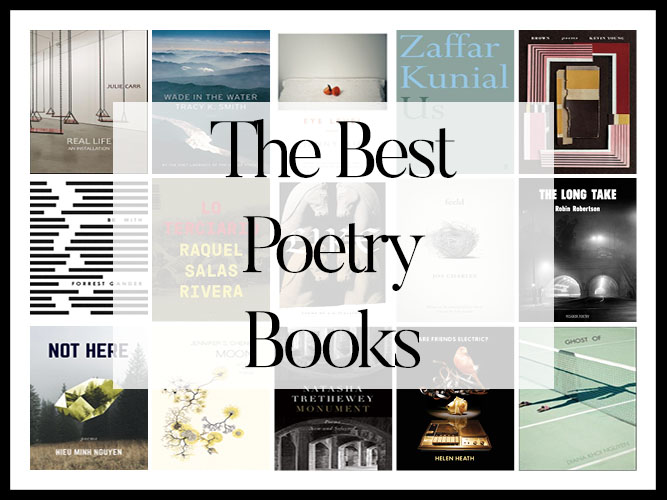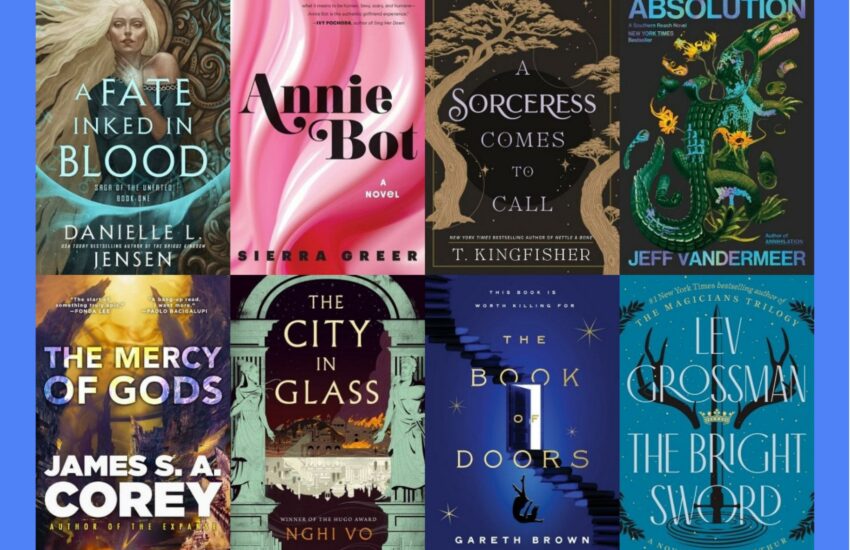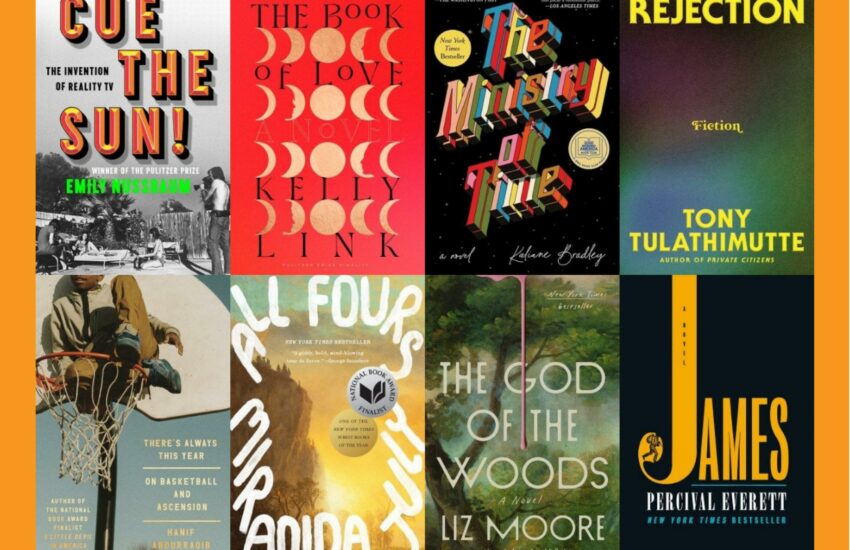The Best Poetry Books of 2018 (A Year-End List Aggregation)
“What are the Best Poetry books of 2018?” We aggregated 15 year-end lists and ranked the 175 unique titles by how many times they appeared in an attempt to answer that very question!
There are thousands of year-end lists released every year and like we do in our weekly Best Book articles, we wanted to see which books appear the most. The top 27 books, all of which appeared on 2 or more “Best Poetry” book lists, are ranked below with images, summaries, and links for more information or to purchase. The remaining 125+ books, as well as the top book lists are at the bottom of the page.
Make sure to take a look at our other Best of 2018 book lists:
- The Best Fiction Books of 2018
- The Best Nonfiction Books of 2018
- The Best Science Fiction & Fantasy Books of 2018
- The Best Science & Nature Books of 2018
- The Best Cookbooks of 2018
- The Best Graphic Novels & Comics Books of 2018
- The Best Art & Photography & Coffee Table Books of 2018
- The Best Books All Categories of 2018
- The Best Biography & Memoir Books of 2018
- The Best Poetry Books of 2018
- The Best History Books of 2018
- The Best Children’s Books of 2018
- The Best Young Adult Books of 2018
You can also take a look at our Best Poetry books from last year as well as all the other Best 2017 articles!
Happy Scrolling!
Top 27 Poetry Books Of 2018
27 .) A Cruelty Special To Our Species: Poems written by Emily Jungmin Yoon
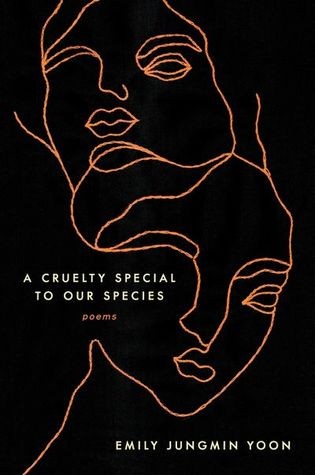
Lists It Appears On:
- Chicago Review Of Books
- NPR
A piercing debut collection of poems exploring gender, race, and violence from a sensational new talent In her arresting collection, urgently relevant for our times, poet Emily Jungmin Yoon confronts the histories of sexual violence against women, focusing in particular on Korean so-called “comfort women,” women who were forced into sexual labor in Japanese-occupied territories during World War II. In wrenching language, A Cruelty Special to Our Species unforgettably describes the brutalities of war and the fear and sorrow of those whose lives and bodies were swept up by a colonizing power, bringing powerful voice to an oppressed group of people whose histories have often been erased and overlooked. “What is a body in a stolen country,” Yoon asks. “What is right in war.” Moving readers through time, space, and different cultures, and bringing vivid life to the testimonies and confessions of the victims,Yoon takes possession of a painful and shameful history even while unearthing moments of rare beauty in acts of resistance and resilience, and in the instinct to survive and bear witness.
26 .) Are Friends Electric? written by Helen Heath
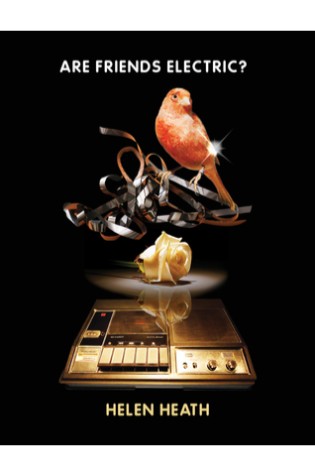
Lists It Appears On:
- The Listener
- The Spinoff
Are Friends Electric? offers a vivid and moving vision of a past, present and future mediated by technology. The first part of Helen Heath’s bold new collection is comprised largely of found poems which emerge from conversations about sex bots, people who feel an intimate love for bridges, fences and buildings, a meditation on Theo Jansen’s beautifully strange animal sculptures, and the lives of birds in cities. A series of speculative poems further explores questions of how we incorporate technology into our lives and bodies. In these poems on grief, Heath asks how technology can keep us close with those we have lost. How might our experiences of grieving and remembering be altered? ‘Helen Heath seats poems that are explicitly about science and scientists alongside poems that explore a more internal world of family, emotion and travel. In doing so she blurs boundaries and masterfully reminds us that science is not a separate and remote entity but is part of the vital continuum of life . . .’ —Judges’ comments, Royal Society of New Zealand Science Book Prize, 2013 Cover art by Kerry Ann Lee Helen Heath’s first book, Graft, was published in 2012 and won the NZSA Jessie Mackay Best First Book for Poetry Award in 2013. It was also the first book of fiction or poetry to be shortlisted for the Royal Society of NZ Science Book Prize. She holds a PhD in creative writing from the International Institute of Modern Letters, Victoria University of Wellington.
25 .) Baby, I Don’t Care written by Chelsey Minnis

Lists It Appears On:
- Chicago Tribune
- The Spinoff
Chelsey Minnis’s new collection of poems follows the struggle of a flawed character in a cinematic world. Playing with old ideas of wealth and love from Hollywood’s golden era, these poems flirt with nostalgia without ever succumbing to it, casting a new light on the present through the fantasies of the past.
24 .) feeld written by jos charles
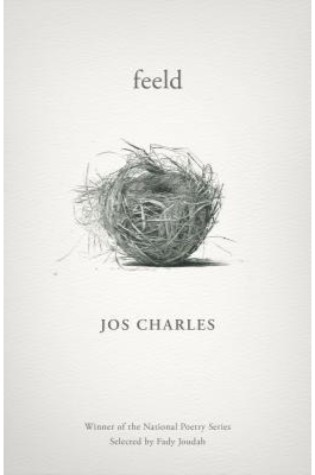
Lists It Appears On:
- Entropy
- New Yorker
Selected by Fady Joudah as a winner of the 2017 National Poetry Series, Jos Charles’s revolutionary second collection of poetry, feeld, is a lyrical unraveling of the circuitry of gender and speech, defiantly making space for bodies that have been historically denied their own vocabulary. “i care so much abot the whord i cant reed.” In feeld, Charles stakes her claim on the language available to speak about trans experience, reckoning with the narratives that have come before by reclaiming the language of the past. In Charles’s electrifying transliteration of English–Chaucerian in affect, but revolutionary in effect–what is old is made new again. “gendre is not the tran organe / gendre is yes a hemorage.” “did u kno not a monthe goes bye / a tran i kno doesnt dye.” The world of feeld is our own, but off-kilter, distinctly queer–making visible what was formerly and forcefully hidden: trauma, liberation, strength, and joy. Urgent and vital, feeld composes a new and highly inventive lyrical narrative of what it means to live inside a marked body.
23 .) Ghost Of written by Diana Khoi Nguyen
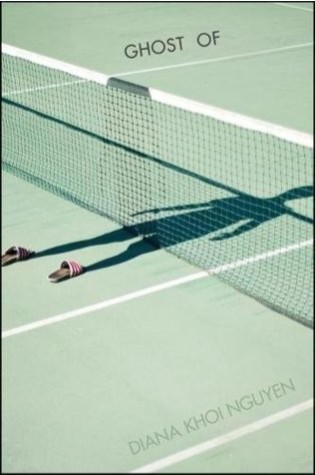
Lists It Appears On:
- Chicago Review Of Books
- Entropy
Ghost Of is a mourning song, not an exorcism or un-haunting of that which haunts, but attuned attention, unidirectional reaching across time, space, and distance to reach loved ones, ancestors, and strangers. By working with, in, and around the photographs that her brother left behind (from which he cut himself out before his death), Nguyen wrestles with what remains: memory, physical voids, and her family captured around an empty space.
22 .) Junk written by Tommy Pico
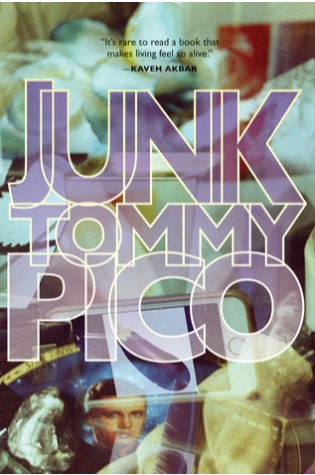
Lists It Appears On:
- Entropy
- NPR
The third book in Tommy Pico’s Teebs trilogy, Junk is a breakup poem in couplets: ice floe and hot lava, a tribute to Janet Jackson and nacho cheese. In the static that follows the loss of a job or an apartment or a boyfriend, what can you grab onto for orientation? The narrator wonders what happens to the sense of self when the illusion of security has been stripped away. And for an indigenous person, how do these lost markers of identity echo larger cultural losses and erasures in a changing political landscape? In part taking its cue from A.R. Ammons’s Garbage, Teebs names this liminal space “Junk,” in the sense that a junk shop is full of old things waiting for their next use; different items that collectively become indistinct. But can there be a comfort outside the anxiety of utility? An appreciation of “being” for the sake of being? And will there be Chili Cheese Fritos?
21 .) Like written by A. E. Stallings
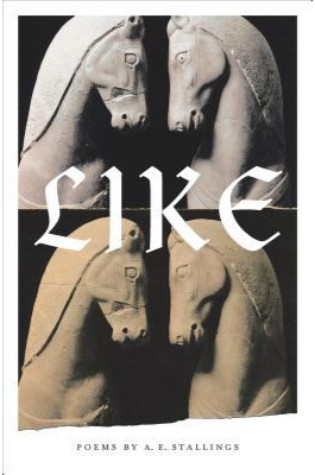
Lists It Appears On:
- New York Times
- New Yorker
Like, that currency of social media, is a little word with infinite potential; it can be nearly any part of speech. Without it, there is no simile, that engine of the lyric poem, the lyre’s note in the epic. A poem can hardly exist otherwise. In this new collection, her most ambitious to date, A. E. Stallings continues her archeology of the domestic, her odyssey through myth and motherhood in received and invented forms, from sonnets to syllabics. Stallings also eschews the poetry volume’s conventional sections for the arbitrary order of the alphabet. Contemporary Athens itself, a place never dull during the economic and migration crises of recent years, shakes off the dust of history and emerges as a vibrant character. Known for her wry and musical lyric poems, Stallings here explores her themes in greater depth, including the bravura performance Lost and Found, a meditation in ottava rima on a parent’s sublunary dance with daily-ness and time, set in the moon’s Valley of Lost Things.
20 .) Lo Terciario / The Tertiary written by Raquel Salas Rivera

Lists It Appears On:
- Entropy
- Publishers Weekly
Poetry. Written in response to the PROMESA bill (Puerto Rico Oversight, Management, and Economic Stability Act) bill, LO TERCIARIO/THE TERCIARY offers a decolonial queer critique and reconsideration of Marx. The book’s titles come from Pedro Scaron’s El Capital, the 1976 translation of Karl Marx’s classic. Published by Siglo Veintiuno Editores, this translation was commonly used by the Puerto Rican left as part of political formation programs. LO TERCIARIO/THE TERCIARY places this text in relation to the Puerto Rican debt crisis, forcing readers to reconsider old questions when facing colonialism’s newest horrors.
19 .) Monument: Poems New And Selected written by Natasha Trethewey
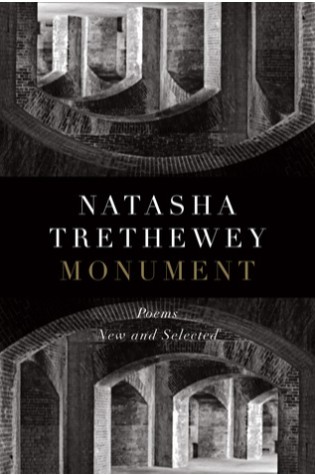
Lists It Appears On:
- Chicago Review Of Books
- NPR
Longlisted for the 2018 National Book Award for Poetry “[Trethewey’s poems] dig beneath the surface of history—personal or communal, from childhood or from a century ago—to explore the human struggles that we all face.” —James H. Billington, 13th Librarian of Congress Layering joy and urgent defiance—against physical and cultural erasure, against white supremacy whether intangible or graven in stone—Trethewey’s work gives pedestal and witness to unsung icons. Monument, Trethewey’s first retrospective, draws together verse that delineates the stories of working class African American women, a mixed-race prostitute, one of the first black Civil War regiments, mestizo and mulatto figures in Casta paintings, Gulf coast victims of Katrina. Through the collection, inlaid and inextricable, winds the poet’s own family history of trauma and loss, resilience and love. In this setting, each section, each poem drawn from an “opus of classics both elegant and necessary,” weaves and interlocks with those that come before and those that follow. As a whole, Monument casts new light on the trauma of our national wounds, our shared history. This is a poet’s remarkable labor to source evidence, persistence, and strength from the past in order to change the very foundation of the vocabulary we use to speak about race, gender, and our collective future.
18 .) Moon: Letters, Maps, Poems written by Jennifer S. Cheng
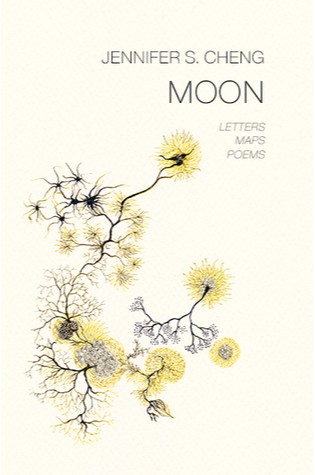
Lists It Appears On:
- Entropy
- Publishers Weekly
Mixing fable and fact, extraordinary and ordinary, Jennifer S. Cheng’s hybrid collection, Moon: Letters, Maps, Poems, draws on various Chinese mythologies about women, particularly that of Chang’E (the Lady in the Moon), uncovering the shadow stories of our myths — with the belief that there is always an underbelly. Moon explores bewilderment and shelter, destruction and construction, unthreading as it rethreads, shedding as it collects.
17 .) Not Here written by Hieu Minh Nguyen
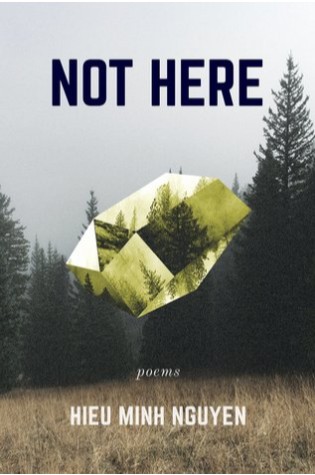
Lists It Appears On:
- BookMarks
- Entropy
Not Here is a flight plan for escape and a map for navigating home; a queer Vietnamese American body in confrontation with whiteness, trauma, family, and nostalgia; and a big beating heart of a book. Nguyen’s poems ache with loneliness and desire and the giddy terrors of allowing yourself to hope for love, and revel in moments of connection achieved.
16 .) Poeta: Selected and New Poems written by Cilla McQueen
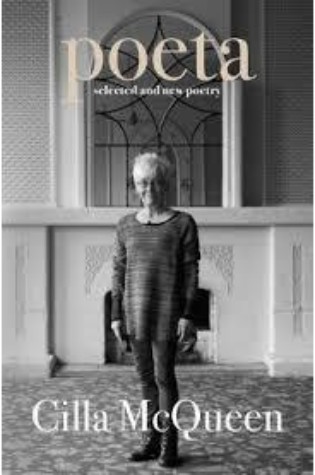
Lists It Appears On:
- The Listener
- The Spinoff
Born in 1949, Bluff-based Cilla McQueen is one of New Zealand’s best-loved poets. Poeta: Selected and New Poems brings together a definitive selection of her poetry spanning five decades, arranged by the poet in a thematic narrative that elucidates abiding themes while maintaining a loose chronology of her creative life to date.Of mixed Scottish and English heritage, McQueen is a translocated Hebridean, a spokesperson variously for the southern islands and coast, Rakiura, Fiordland, Murihiku and Dunedin. One of a few indispensable poetic voices of the south, she has long been part of a social matrix of artists, among them Hone Tuwhare, Ralph Hotere and Marilynn Webb, dedicated to bringing out the native brogue and colours of Southland–Otago. Poeta gathers together poems from the poet’s 14 previous volumes, punctuated by 11 striking drawings, and also includes a range of new work that shows her riddling creativity continuing to grow and evolve. Collectively, the poems demonstrate a versatile and diligent wordsmith never content to sit on her laurels, ever experimenting and improving in her attempt to write the world’s poem.
15 .) Real Life: An Installation written by Julie Carr
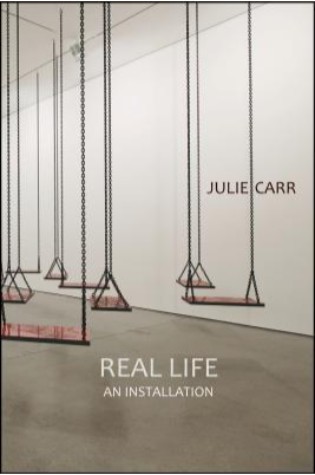
Lists It Appears On:
- Entropy
- Publishers Weekly
In a book rich with formal variety and lyric intensity, Carr takes up economic inequality, gendered violence, losses both personal and national, and the crisis of the body within all of these forces. Real Life: An Installation is a terrifying book, but one that keeps us close as it moves through the disruptions and eruptions of the real.
14 .) The Final Voicemails written by Max Ritvo
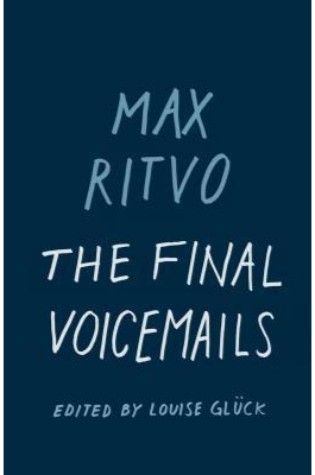
Lists It Appears On:
- BookMarks
- New Yorker
“Even present tense has some of the grace of past tense, / what with all the present tense left to go.” From Max Ritvo–selected and edited by Louise Gluck–comes a final collection of poems fully inscribed with the daring of his acrobatic mind and the force of his unrelenting spirit. Diagnosed with terminal cancer at sixteen, Ritvo spent the next decade of his life writing with frenetic energy, culminating in the publication of Four Reincarnations. As with his debut, The Final Voicemails brushes up against the pain, fear, and isolation that accompany a long illness, but with all the creative force of an artist in full command of his craft and the teeming affection of a human utterly in love with the world. The representation of the end of life resists simplicity here. It is physical decay, but it is also tedium. It is alchemy, “the breaking apart, / the replacement of who, when, how, and where, / with what.” It is an antagonist–and it is a part of the self. Ritvo’s poems ring with considered reflection on the enduring final question, while suggesting–in their vibrancy and their humor–that death is not merely an end. The Final Voicemails is an ecstatic, hopeful, painful–and completely breathtaking–second collection.
13 .) The Long Take written by Robin Robertson
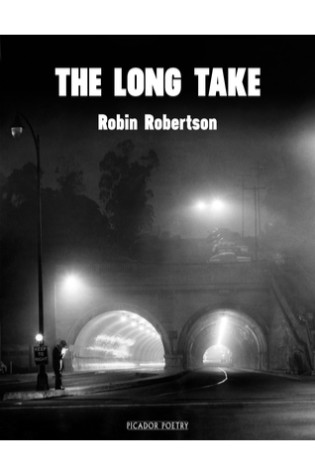
Lists It Appears On:
- Financial Times
- The Spinoff
Walker, a young Canadian recently demobilised after war and his active service in the Normandy landings and subsequent European operations. Suffering from post-traumatic stress disorder, and unable to face a return to his family home in rural Nova Scotia, he goes in search of freedom, change, anonymity and repair. We follow Walker through a sequence of poems as he moves through post-war American cities of New York, Los Angles and San Francisco.
12 .) The Poet X written by Elizabeth Acevedo
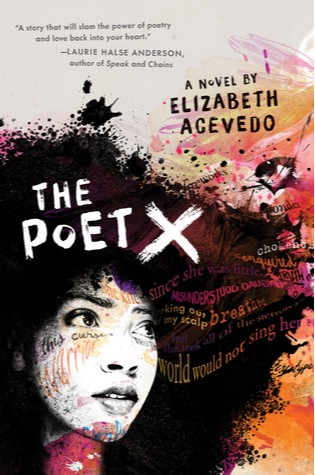
Lists It Appears On:
- Goodreads
- NPR
A young girl in Harlem discovers slam poetry as a way to understand her mother’s religion and her own relationship to the world. Debut novel of renowned slam poet Elizabeth Acevedo. Xiomara Batista feels unheard and unable to hide in her Harlem neighborhood. Ever since her body grew into curves, she has learned to let her fists and her fierceness do the talking. But Xiomara has plenty she wants to say, and she pours all her frustration and passion onto the pages of a leather notebook, reciting the words to herself like prayers—especially after she catches feelings for a boy in her bio class named Aman, who her family can never know about. With Mami’s determination to force her daughter to obey the laws of the church, Xiomara understands that her thoughts are best kept to herself. So when she is invited to join her school’s slam poetry club, she doesn’t know how she could ever attend without her mami finding out, much less speak her words out loud. But still, she can’t stop thinking about performing her poems. Because in the face of a world that may not want to hear her, Xiomara refuses to be silent.
11 .) Us written by Zaffar Kunial

Lists It Appears On:
- Financial Times
- The Spinoff
Us is the eloquent and affecting debut from the talented Zaffar Kunial. In a series of approachable, lyric narratives, the poems in Kunial’s hypnotic collection look with a tender toughness at his upbringing by his English mother and Lahore-based, Kashmiri father, and the distances his own life has had to travel in between. With pinpoint precision, Kunial unlocks his familial and national languages to examine worlds to which he at once belongs and remains simultaneously estranged. Already an acknowledged star of the Faber New Poets scheme, Kunial has won admirers and awards in such measure as to ensure that Uswill be one of the most talked about debuts in recent times.
10 .) Be With written by Forrest Gander
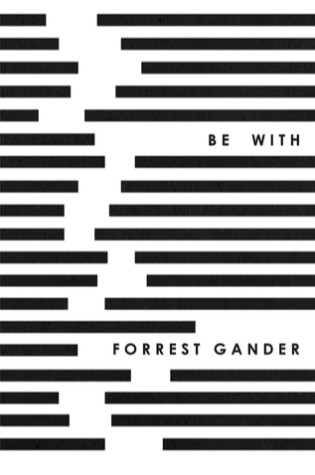
Lists It Appears On:
- Entropy
- New Yorker
- Publishers Weekly
Drawing from his experience as a translator, Forrest Gander includes in the first, powerfully elegiac section a version of a poem by the Spanish mystical poet St. John of the Cross. He continues with a long multilingual poem examining the syncretic geological and cultural history of the U.S. border with Mexico. The poems of the third section—a moving transcription of Gander’s efforts to address his mother dying of Alzheimer’s—rise from the page like hymns, transforming slowly from reverence to revelation. Gander has been called one of our most formally restless poets, and these new poems express a characteristically tensile energy and, as one critic noted, “the most eclectic diction since Hart Crane.”
9 .) Citizen Illegal written by José Olivarez
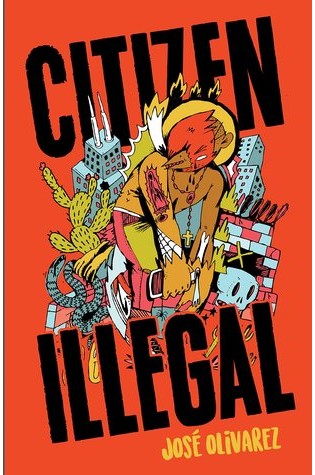
Lists It Appears On:
- BookMarks
- Chicago Review Of Books
- NPR
In this stunning debut, poet José Olivarez explores the stories, contradictions, joys, and sorrows that embody life in the spaces between Mexico and America. He paints vivid portraits of good kids, bad kids, families clinging to hope, life after the steel mills, gentrifying barrios, and everything in between. Drawing on the rich traditions of Latinx and Chicago writers like Sandra Cisneros and Gwendolyn Brooks, Olivarez creates a home out of life in the in-between. Combining wry humor with potent emotional force, Olivarez takes on complex issues of race, ethnicity, gender, class, and immigration using an everyday language that invites the reader in. Olivarez has a unique voice that makes him a poet to watch.
8 .) Eye Level written by Jenny Xie
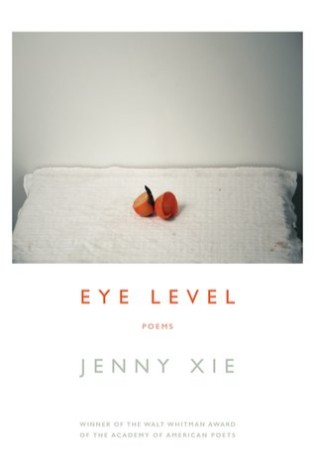
Lists It Appears On:
- BookMarks
- Entropy
- New Yorker
Jenny Xie’s award-winning debut, Eye Level, takes us far and near, to Phnom Penh, Corfu, Hanoi, New York, and elsewhere, as we travel closer and closer to the acutely felt solitude that centers this searching, moving collection. Animated by a restless inner questioning, these poems meditate on the forces that moor the self and set it in motion, from immigration to travel to estranging losses and departures. The sensual worlds here―colors, smells, tastes, and changing landscapes―bring to life questions about the self as seer and the self as seen. As Xie writes, “Me? I’m just here in my traveler’s clothes, trying on each passing town for size.” Her taut, elusive poems exult in a life simultaneously crowded and quiet, caught in between things and places, and never quite entirely at home. Xie is a poet of extraordinary perception―both to the tangible world and to “all that is untouchable as far as the eye can reach.”
7 .) If They Come for Us written by Fatimah Asghar
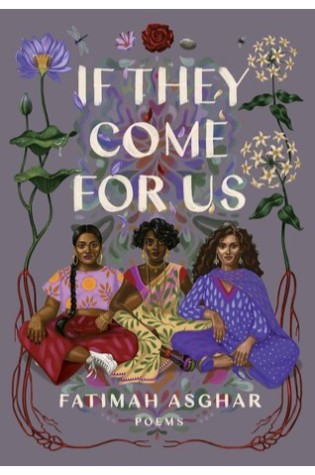
Lists It Appears On:
- Chicago Review Of Books
- Entropy
- Goodreads
Poet and co-creator of the Emmy-nominated web series “Brown Girls” captures the experience of being a Pakistani Muslim woman in contemporary America, while exploring identity, violence, and healing. In this powerful and imaginative debut poetry collection, Fatimah Asghar nakedly captures the experiences of being a young Pakistani Muslim woman in America by braiding together personal and marginalized people’s histories. After being orphaned as a young girl, Asghar grapples with coming-of-age as a woman without the guidance of a mother, questions of sexuality and race, and navigating a world that put a target on her back. Asghar’s poems at once bear anguish, joy, vulnerability, and compassion, while exploring the many facets of violence: how it persists within us, how it is inherited across generations, and how it manifests in our relationships with friends and family, and in our own understanding of identity. Using experimental forms and a mix of lyrical and brash language, Asghar confronts her own understanding of identity and place and belonging.
6 .) New Poets Of Native Nations written by Heid E. Erdrich
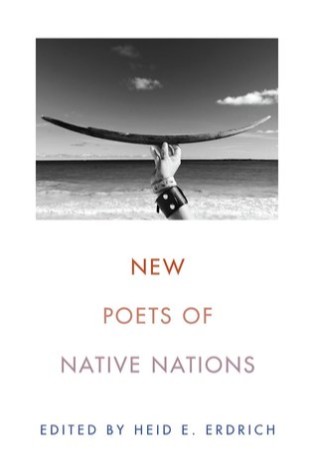
Lists It Appears On:
- Entropy
- NPR
- The Washington Post
An anthology celebrating twenty-one Native poets first published in the twenty-first century New Poets of Native Nations gathers poets of diverse ages, styles, languages, and tribal affiliations to present the extraordinary range and power of new Native poetry. Heid E. Erdrich has selected twenty-one poets whose first books were published after the year 2000 to highlight the exciting works coming up after Joy Harjo and Sherman Alexie. Collected here are poems of great breadth―long narratives, political outcries, experimental works, and traditional lyrics―and the result is an essential anthology of some of the best poets writing now. Poets included are Tacey M. Atsitty, Trevino L. Brings Plenty, Julian Talamantez Brolaski, Laura Da’, Natalie Diaz, Jennifer Elise Foerster, Eric Gansworth, Gordon Henry, Jr., Sy Hoahwah, LeAnne Howe, Layli Long Soldier, Janet McAdams, Brandy Nalani McDougall, Margaret Noodin, dg okpik, Craig Santos Perez, Tommy Pico, Cedar Sigo, M. L. Smoker, Gwen Westerman, and Karenne Wood.
5 .) The Flame written by Leonard Cohen
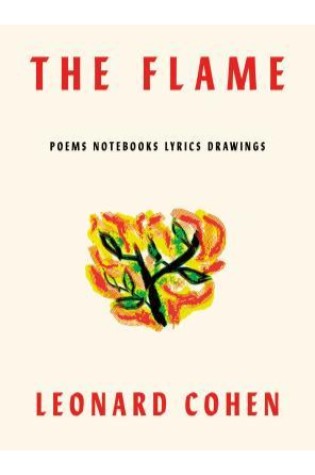
Lists It Appears On:
- CBC
- Financial Times
- Goodreads
The Flame is the final work from Leonard Cohen, the revered poet and musician whose fans span generations and whose work is celebrated throughout the world. Featuring poems, excerpts from his private notebooks, lyrics, and hand-drawn self-portraits, The Flame offers an unprecedentedly intimate look inside the life and mind of a singular artist. A reckoning with a life lived deeply and passionately, with wit and panache, The Flame is a valedictory work. “This volume contains my father’s final efforts as a poet,” writes Cohen’s son, Adam Cohen, in his foreword. “It was what he was staying alive to do, his sole breathing purpose at the end.” Leonard Cohen died in late 2016. But “each page of paper that he blackened,” in the words of his son, “was lasting evidence of a burning soul.”
4 .) The Carrying written by Ada Limón
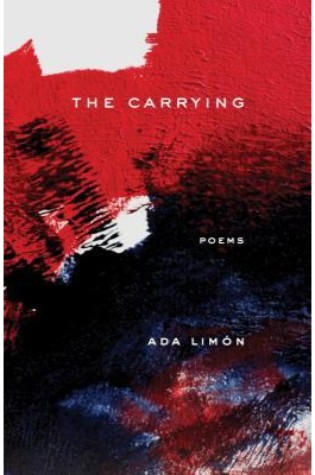
Lists It Appears On:
- BookMarks
- NPR
- Publishers Weekly
- The Washington Post
From National Book Award and National Book Critics Circle Award finalist Ada Limón comes The Carrying—her most powerful collection yet. Vulnerable, tender, acute, these are serious poems, brave poems, exploring with honesty the ambiguous moment between the rapture of youth and the grace of acceptance. A daughter tends to aging parents. A woman struggles with infertility—“What if, instead of carrying / a child, I am supposed to carry grief?”—and a body seized by pain and vertigo as well as ecstasy. A nation convulses: “Every song of this country / has an unsung third stanza, something brutal.” And still Limón shows us, as ever, the persistence of hunger, love, and joy, the dizzying fullness of our too-short lives. “Fine then, / I’ll take it,” she writes. “I’ll take it all.” In Bright Dead Things, Limón showed us a heart “giant with power, heavy with blood”—“the huge beating genius machine / that thinks, no, it knows, / it’s going to come in first.” In her follow-up collection, that heart is on full display—even as The Carrying continues further and deeper into the bloodstream, following the hard-won truth of what it means to live in an imperfect world.
3 .) American Sonnets for My Past and Future Assassin written by Terrance Hayes
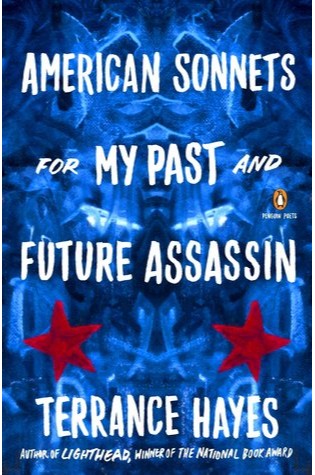
Lists It Appears On:
- BookMarks
- Goodreads
- New Yorker
- The Spinoff
- The Washington Post
In seventy poems bearing the same title, Terrance Hayes explores the meanings of American, of assassin, and of love in the sonnet form. Written during the first two hundred days of the Trump presidency, these poems are haunted by the country’s past and future eras and errors, its dreams and nightmares. Inventive, compassionate, hilarious, melancholy, and bewildered–the wonders of this new collection are irreducible and stunning.
2 .) Brown: Poems written by Kevin Young
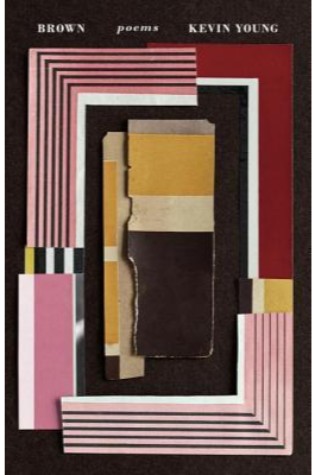
Lists It Appears On:
- BookMarks
- Entropy
- Goodreads
- NPR
- The New York Times
James Brown. John Brown’s raid. Brown v. the Topeka Board of Ed. The prize-winning author of Blue Laws meditates on all things “brown” in this powerful new collection. Divided into “Home Recordings” and “Field Recordings,” Brown speaks to the way personal experience is shaped by culture, while culture is forever affected by the personal, recalling a black Kansas boyhood to comment on our times. From “History”–a song of Kansas high-school fixture Mr. W., who gave his students “the Sixties / minus Malcolm X, or Watts, / barely a march on Washington”–to “Money Road,” a sobering pilgrimage to the site of Emmett Till’s lynching, the poems engage place and the past and their intertwined power. These thirty-two taut poems and poetic sequences, including an oratorio based on Mississippi “barkeep, activist, waiter” Booker Wright that was performed at Carnegie Hall and the vibrant sonnet cycle “De La Soul Is Dead,” about the days when hip-hop was growing up (“we were black then, not yet / African American”), remind us that blackness and brownness tell an ongoing story. A testament to Young’s own–and our collective–experience, Brown offers beautiful, sustained harmonies from a poet whose wisdom deepens with time.
1 .) Wade in the Water written by Tracy K. Smith
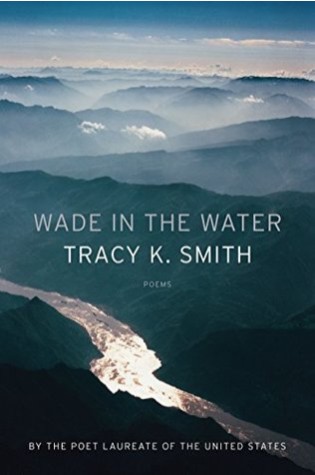
Lists It Appears On:
- BookMarks
- Goodreads
- New York Times
- The New York Times
- The Washington Post
The extraordinary new poetry collection by Tracy K. Smith, the Poet Laureate of the United States Even the men in black armor, the ones Jangling handcuffs and keys, what elseAre they so buffered against, if not love’s blade Sizing up the heart’s familiar meat?We watch and grieve. We sleep, stir, eat. Love: the heart sliced open, gutted, clean.Love: naked almost in the everlasting street, Skirt lifted by a different kind of breeze.—from “Unrest in Baton Rouge”In Wade in the Water, Tracy K. Smith boldly ties America’s contemporary moment both to our nation’s fraught founding history and to a sense of the spirit, the everlasting. These are poems of sliding scale: some capture a flicker of song or memory; some collage an array of documents and voices; and some push past the known world into the haunted, the holy. Smith’s signature voice—inquisitive, lyrical, and wry—turns over what it means to be a citizen, a mother, and an artist in a culture arbitrated by wealth, men, and violence. Here, private utterance becomes part of a larger choral arrangement as the collection widens to include erasures of The Declaration of Independence and the correspondence between slave owners, a found poem comprised of evidence of corporate pollution and accounts of near-death experiences, a sequence of letters written by African Americans enlisted in the Civil War, and the survivors’ reports of recent immigrants and refugees. Wade in the Water is a potent and luminous book by one of America’s essential poets.
The 125+ Additional Best Poetry Books Of 2018
| # | Books | Lists | Authors |
| 28 | A Carnival Of Losses: Notes Nearing Ninety | Donald Hall | NPR |
| 29 | A Love Letter from the Girls Who Feel Everything | Goodreads | |
| 30 | A Lucky Man: Stories | Jamel Brinkley | NPR |
| 31 | A MEMORY OF THE FUTURE | New York Times | |
| 32 | A Thousand Beginnings And Endings | Ellen Oh and Elsie Chapman (editors) | NPR |
| 33 | Age of Glass | Anna Maria Hong | Entropy |
| 34 | All The Names They Used For God | Anjali Sachdeva | NPR |
| 35 | All This Could Be Yours | Isobel O’Hare | Entropy |
| 36 | American Hate: Survivors Speak Out | Arjun Singh Sethi | NPR |
| 37 | American Letters: works on paper | giovanni singleton | Entropy |
| 38 | At Your Feet | Ana Cristina Cesar | Entropy |
| 39 | Attack of the Fifty-Foot Centerfold | Dorothy Chan | Entropy |
| 40 | Attendance | Rocío Carlos and Rachel McLeod Kaminer | Entropy |
| 41 | Autobiography of Death | Kim Hyesoon | Entropy |
| 42 | Back Talk: Stories | Danielle Lazarin | NPR |
| 43 | Black Queer Hoe | Chicago Review Of Books | |
| 44 | Blackbird Song | Randy Lundy | CBC |
| 45 | BLOOD LABORS | New York Times | |
| 46 | Blood Water Paint | Goodreads | |
| 47 | Calypso | David Sedaris | NPR |
| 48 | Cenzontle | Marcelo Hernandez Castillo | NPR |
| 49 | City of the Future | Sesshu Foster | Entropy |
| 50 | City Poems | Joe Fiorito | CBC |
| 51 | Collected Poems of Bertolt Brecht | Chicago Tribune | |
| 52 | Crosslight for Youngbird | Asiya Wadud | Entropy |
| 53 | Cruel Fiction | Wendy Trevino | Entropy |
| 54 | Cruel Futures | Carmen Giménez Smith | Entropy |
| 55 | Dark Hour | Nadia de Vries | Entropy |
| 56 | DARK WOODS | New York Times | |
| 57 | Dear Angel of Death | Simone White | Entropy |
| 58 | Don’t Call Us Dead | Financial Times | |
| 59 | Don’t Let Them See Me Like This | Jasmine Gibson | Entropy |
| 60 | Drafts, Fragments, and Poems: The Complete Poetry, | Joan Murray’s | New Yorker |
| 61 | Edgeland | David Eggleton | The Listener |
| 62 | edited | Maraea Rakuraku and Vana Manasiadis | The Spinoff |
| 63 | Feel Free: Essays | Zadie Smith | NPR |
| 64 | Feeling Upon Arrival | Saretta Morgan | Entropy |
| 65 | Figure & Ground | Robert McLean | The Listener |
| 66 | Florida | Lauren Groff | NPR |
| 67 | For an Ineffable Metrics of the Desert | Mostafa Nissabouri | Entropy |
| 68 | For Every One | Goodreads | |
| 69 | He’s so MASC | Chris Tse | The Spinoff |
| 70 | Heads Of The Colored People: Stories | Nafissa Thompson-Spires | NPR |
| 71 | Heart Talk: Poetic Wisdom for a Better Life | Goodreads | |
| 72 | Heaven Is All Goodbyes | Chicago Tribune | |
| 73 | Helium | Goodreads | |
| 74 | HEY, MARFA | New York Times | |
| 75 | Holy Moly Carry Me | Erika Meitner | Entropy |
| 76 | Houghton Mifflin Harcourt | Chicago Review Of Books | |
| 77 | House of McQueen | Chicago Review Of Books | |
| 78 | How Are You Going To Save Yourself | JM Holmes | NPR |
| 79 | How Long ‘Til Black Future Month?: Stories | N.K. Jemisin | NPR |
| 80 | HUMAN HOURS | New York Times | |
| 81 | I don’t write about race | June Gehringer | Entropy |
| 82 | I Have Never Been Able to Sing | Alexis Almeida | Entropy |
| 83 | I Think I’m Ready to See Frank Ocean | Shayla Lawson | Entropy |
| 84 | If You See Me, Don’t Say Hi: Stories | Neel Patel | NPR |
| 85 | Indictus | Natalie Eilbert | Entropy |
| 86 | Inside Song | Steve Dickison | Entropy |
| 87 | Isako Isako | Mia Ayumi Malhotra | Entropy |
| 88 | It Begins with the Body | Hana Shafi | CBC |
| 89 | Landia | Celina Su | Entropy |
| 90 | Letters from Max: A Book of Friendship | Max Ritvo and Sarah Ruhl | New Yorker |
| 91 | Letters to the Future: Black WOMEN/Radical WRITING Edited | Erica Hunt & Dawn Lundy Martin | Entropy |
| 92 | Lucy 72 | Ronaldo V Wilson and LUCY | Entropy |
| 93 | Luxembourg | Stephen Oliver | The Listener |
| 94 | Midden | Julia Bouwsma | NPR |
| 95 | Museum of the Americas | J. Michael Martinez | New Yorker |
| 96 | My Own Devices: True Stories From The Road On Music, Science, And Senseless Love | Dessa | NPR |
| 97 | Nepantla: An Anthology Dedicated to Queer Poets of Color Edited | Christopher Soto | Entropy |
| 98 | Nerve Chorus | Willa Carroll | Entropy |
| 99 | New and Selected Poems of Cecilia Vicuña | Cecilia Vicuña | Entropy |
| 100 | Night Became Years | Jason Stefanik | CBC |
| 101 | Not My White Savior | Julayne Lee | Entropy |
| 102 | Nowhere Nearer | Alice Miller | The Listener |
| 103 | Obits | Tess Liem | CBC |
| 104 | Obtuse Diary | Amelia Rosselli | Entropy |
| 105 | Oceanic | BookMarks | |
| 106 | Omnidawn | Chicago Review Of Books | |
| 107 | Once And Forever: The Tales Of Kenji Miyazawa | Kenji Miyazawa, translated | NPR |
| 108 | One Hundred Poems and a Year | Bob Orr | The Spinoff |
| 109 | One World | Chicago Review Of Books | |
| 110 | Orient | Nicholas Gulig | Entropy |
| 111 | Outside of the Body There is Something Like Hope | Joshua Jennifer Espinoza | Entropy |
| 112 | Pamper Me to Hell & Back | Hera Lindsay Bird | The Spinoff |
| 113 | People from the Pit Stand Up | Sam Duckor-Jones | The Spinoff |
| 114 | Perennial | Chicago Review Of Books | |
| 115 | Port of Being | Shazia Hafiz Ramji | CBC |
| 116 | Poūkahangatus | Tayi Tibble | The Spinoff |
| 117 | pungent dins concentric | Chicago Tribune | |
| 118 | Rabbit | Sophie Robinson | The Spinoff |
| 119 | Rebound | Goodreads | |
| 120 | Registers of Illuminated Villages | Tarfia Faizullah | Entropy |
| 121 | river woman | Katherena Vermette | CBC |
| 122 | Rodeo in Reverse | Chicago Review Of Books | |
| 123 | Screwball | Anne Kawala | Entropy |
| 124 | Sea of Strangers | Goodreads | |
| 125 | She Felt Like Feeling Nothing | Goodreads | |
| 126 | Sheep Machine | Vi Khi Nao | Entropy |
| 127 | Shrines of Upper Austria | Phoebe Power | The Spinoff |
| 128 | Sincerity | Carol Ann Duffy | The Spinoff |
| 129 | Sit How You Want | Robin Richardson | CBC |
| 130 | SKY WRI TEI NGS | Nasser Hussain | CBC |
| 131 | So Far So Good | Ursula K. Le Guin | The Washington Post |
| 132 | Soap for the Dogs | Stacey Tran | Entropy |
| 133 | Some Animal | Ely Shipley | Entropy |
| 134 | Some Trick: Thirteen Stories | Helen DeWitt | NPR |
| 135 | Songs and Ballads | Chicago Tribune | |
| 136 | Stars | Lucy Haché | CBC |
| 137 | Surge | Etel Adnan | Entropy |
| 138 | Take Me with You | Goodreads | |
| 139 | Taking the Arrow Out of the Heart | Goodreads | |
| 140 | Tātai Whetū: Seven Māori Women Poets in Translation | The Spinoff | |
| 141 | Terrible Blooms | Melissa Stein | Entropy |
| 142 | The Blue Clerk | Dionne Brand | CBC |
| 143 | The Boneyard, The Birth Manual, A Burial: Investigations into the Heartland | Julia Madsen | Entropy |
| 144 | The Book of Cord | Leona Chen | Entropy |
| 145 | The Coming of the Little Green Man | Financial Times | |
| 146 | The Dark Between Stars | Goodreads | |
| 147 | The Desert | Brandon Shimoda | Entropy |
| 148 | The Farewell Tourist | Alison Glenny | The Spinoff |
| 149 | The Friday Poem: 100 New Zealand Poems edited | Steve Braunias | The Spinoff |
| 150 | The Future | Goodreads | |
| 151 | The Largesse Of The Sea Maiden: Stories | Denis Johnson | NPR |
| 152 | The Length of this Gap | Kristen E. Nelson | Entropy |
| 153 | The Letters of Sylvia Plath, Volume II, 1956-1963 | New Yorker | |
| 154 | The Merry Spinster: Tales Of Everyday Horror | Daniel Mallory Ortberg | NPR |
| 155 | The Odyssey | HOMER | The New York Times |
| 156 | THE POPOL VUH | New York Times | |
| 157 | The Undressing | Li-Young Lee | Entropy |
| 158 | The View From Flyover Country: Dispatches From The Forgotten America | Sarah Kendzior | NPR |
| 159 | The Witch Doesn’t Burn in This One (Women Are Some Kind of Magic, #2) | Goodreads | |
| 160 | The Wrong Heaven | Amy Bonnaffons | NPR |
| 161 | to afar from afar | Soham Patel | Entropy |
| 162 | TRANSACTION HISTORIES | New York Times | |
| 163 | Trickster Feminism | Anne Waldman | Entropy |
| 164 | Useless Magic: Lyrics and Poetry | Goodreads | |
| 165 | View From the South | Owen Marshall | The Listener |
| 166 | Virgin | BookMarks | |
| 167 | Walking to Jutland Street | Michael Steven | The Spinoff |
| 168 | What Is Left Behind | Tom Weston | The Listener |
| 169 | When the Bird is Not a Human | HR Hegnauer | Entropy |
| 170 | Whisper of a Crow’s Wing | Majella Cullinane | The Listener |
| 171 | Who Is Mary Sue | Sophie Collins | The Spinoff |
| 172 | XYZ of Happiness | Mary McCallum | The Listener |
| 173 | YEARS, MONTHS, AND DAYS | New York Times | |
| 174 | You Think It, I’ll Say It: Stories | Curtis Sittenfeld | NPR |
| 175 | Your Duck Is My Duck: Stories | Deborah Eisenberg | NPR |
15 Best Poetry Books Of 2018 Sources/Lists
| Source | Article |
| BookMarks | The Best Reviewed Books of 2018: Poetry |
| CBC | The best Canadian poetry of 2018 |
| Chicago Review Of Books | The 10 Best Poetry Books of 2018 |
| Chicago Tribune | Poet Michael Robbins offers picks for best poetry collections of 2018 |
| Entropy | Best of 2018: Best Poetry Books & Poetry Collections |
| Financial Times | Best books of 2018: Poetry |
| Goodreads | Best Poetry 2018 |
| New York Times | The Best Poetry of 2018The Best Poetry of 2018 |
| New Yorker | The Poetry I Was Grateful For in 2018 |
| NPR | https://apps.npr.org/best-books-2018/ |
| Publishers Weekly | Best Poetry Books 2018 |
| The Listener | The Listener’s 10 Best Poetry Books of 2018 |
| The New York Times | 100 Notable Books of 2018 |
| The Spinoff | Official proclamation: The 20 best poetry books of 2018 |
| The Washington Post | The 5 best poetry collections of 2018 |
